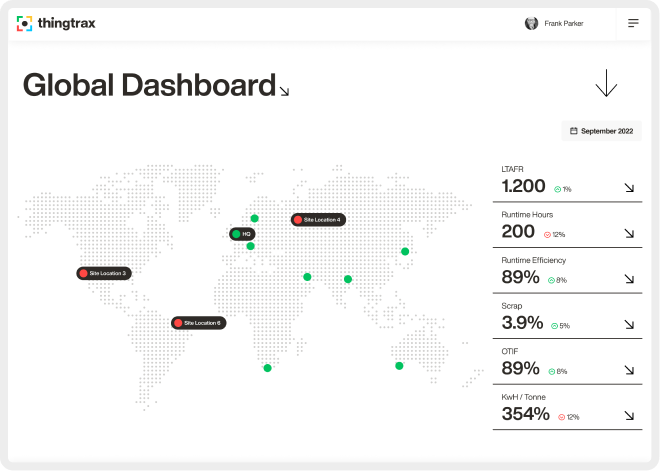The metaverse – a whole new world of opportunity?

by Startacus Admin
The business of the metaverse - Chris Pottrell, founder and MD of Nebula explores what it all means for the startup and SME sectors.
As 2023 looks set to see the metaverse grow exponentially and become more immersive and more expansive than ever before, Chris Pottrell, founder and MD of Nebula explores what it all means for the startup and small business community.
The term ‘metaverse’ is still everywhere. Ever since Zuckerberg claimed his stake in late 2021 by rebranding Facebook to Meta, it has set off a step-change in innovation as tech giants race to be the first to establish ‘the next iteration of the web.’
 This was seen in the recent arrival of ‘Microsoft Mesh’, a mixed-reality communication platform that's based on holograms, using 3D captures to let people work together as if they were in the same space. Apple is also well into the metaverse mix, with it expected to announce a high-end headset that mixes virtual reality and augmented this year. And Google continues to ramp up its Augmented Reality and Virtual Reality solutions behind the scenes. As for Meta too, while we may all be well acquainted with news of its financial woes, there is no doubting its continued ambition to coin the next technological revolution.
This was seen in the recent arrival of ‘Microsoft Mesh’, a mixed-reality communication platform that's based on holograms, using 3D captures to let people work together as if they were in the same space. Apple is also well into the metaverse mix, with it expected to announce a high-end headset that mixes virtual reality and augmented this year. And Google continues to ramp up its Augmented Reality and Virtual Reality solutions behind the scenes. As for Meta too, while we may all be well acquainted with news of its financial woes, there is no doubting its continued ambition to coin the next technological revolution.
The result? Whether it’s an idea that fills you with dread or joy there’s no escaping that some form of virtual ‘metaverse’ world will be created over the next few years – and its impact could be immense.
Today, we use the internet as we choose. In the metaverse it will be woven into the very fabric of our lives. This will transform the human experience, from the way we work, play and go about all parts of our daily lives. In theory, it will mean that we spend lots of time interacting with our friends and colleagues in a virtual space and spend money there too. Alongside this it will revolutionise the business world, prompting companies to change their operations and how they engage their customers.
For startups and SMEs, of course, this raises all types of questions. Principally, what does it mean for business and how can I prepare my business ahead of time?
To begin with, it’s important to first understand what the metaverse is. Broadly speaking, it can be defined as an integrated network of virtual reality and mixed reality worlds where people can meet, interact and do business. And it won’t be one entity but will rather be an ecosystem of various online worlds which will continue to grow as the market gets more competitive. This will mean, much like a URL, any size business will be able to own a space in the ‘realm.’
The result is a huge opportunity, especially for startups and SMEs. As we all know, it is a hugely challenging time for the small business community amid the difficult economy and shifting consumer behaviours. This becomes even more pertinent for bricks and mortar operators who also have to contend with the ‘death of the high street.’
The good news is the metaverse has the answer. This is because it enables smaller businesses a way to create an immersive and interactive environment without the need for costly physical infrastructure. It also offers the ability to rapidly increase visibility and reach a much wider audience.
Another major advantage is the flexibility afforded by the metaverse. Want to overhaul your customer engagement model or test out a new product before its release quickly? No problem. By enabling infinite flexibility, the metaverse presents a unique opportunity for small business to respond to evolving customer behaviours and demand at pace without the limitations afforded by the traditional business model. In this way, the consensus is that it could potentially level the playing field with larger businesses by helping smaller enterprises to compete on a global scale.
 Thus, with the commercial benefits of joining the metaverse arguably conclusive, the question begs – how can business owners prepare for it?
Thus, with the commercial benefits of joining the metaverse arguably conclusive, the question begs – how can business owners prepare for it?
Inherently, entering the metaverse will mean different things for different types of business. For one small business, it might mean establishing a virtual remote working environment for employees. For another, it could mean building an entire new virtual environment.
Generally speaking though, the most obvious first step for any business owner seeking to prepare for this new 3D reality should be to undertake a robust assessment of the existing digital infrastructure.
Today, many smaller businesses still rely on traditional, often aged IT architectures based on siloed, on-premises devices. However, this approach can be hugely restrictive in terms of the limited server capacity and slow deployment times. Considering the vast amount of storage and processing required to support a virtual reality world, the reality is that remote cloud-based computing will become the only option – and is therefore something for business leaders who aren’t already doing so to consider now. A further benefit of a consumption-based cloud infrastructure is the ability for businesses to extend their network and adjust their bandwidth in line with evolving metaverse requirements.
Next, it’s time to think about your access to smart analytics. Already, amid the backdrop of soaring digitisation and growing cyber security concerns, ensuring full visibility into network performance should be a critical consideration for any type of business. As the metaverse pushes bandwidth and storage requirements to the edge, this will become even more important in order to detect and address any changes on the network ahead of time, predict performance constraints and make recommendations for network changes.
It also goes without saying that cybersecurity should be a major priority. From facial recognition to biometric data, the sensitive behavioural data held in the metaverse could be a goldmine for hackers. That means having a robust, watertight cybersecurity programme complete with the correct protection, detection and response strategy is absolutely essential – ideally developed by an expert IT consultancy in the field.
Even with all the media hype, the reality is that the metaverse is still a long way off. Mark Zuckerberg estimates it as ten years from now at least. However, that is not to say that businesses can afford to lose sight of the conversation. As with all major technological shifts, it will be those that keep pace that retain a competitive advantage. With the huge benefits presented by the associated promise of a global audience and new market opportunities, it is surely time to claim a stake in the realm.
For further information please visit https://nebulait.co.uk
ABOUT THE AUTHOR
Chris Pottrell is the Founder and Managing Director of Nebula, a leading IT firm specialising in providing IT support, cyber security and cloud migration services to a range of SME business sectors throughout the UK. The business was set up by Chris in 2012 in a bid to help businesses harness new possibilities in IT to maximise their business potential and drive growth. Headquartered in Bristol, with a number of additional facilities across the South West, Nebula has a nationwide presence.
Subscribe to our newsletter
If you would like to receive our startup themed newsletter, full of the latest startup opportunities, events, news, stories, tips and advice, then sign up here. How Manufacturing Businesses Can Reduce Energy Costs
How Manufacturing Businesses Can Reduce Energy CostsGot a business in the manufacturing sector? These tips on how you can reduce energy costs while being more sustainable are well worth a read...
 SureIn Secures €4M to Close the SMB Insurance Gap
SureIn Secures €4M to Close the SMB Insurance GapInnovative InsurTech startup SureIn announces a €4M Seed round to further its mission of making insurance easy, transparent and hassle-free for SMBs.
 How IoT Is Revolutionising Consumers' Daily Lives
How IoT Is Revolutionising Consumers' Daily Lives Nassia Skoulikariti, Director of IoT Programmes, Mobile Ecosystem Forum shares some insights on how IoT is having a significant impact on all our lives.
 How to invest in tech companies with the help of AI
How to invest in tech companies with the help of AIRoger James Hamilton, Founder and CEO of Genius Group, a world-leading entrepreneur Edtech and education group, discusses how introducing a globalized curriculum will help better prepare students.
 SuperFi raises $1M pre-seed funding round
SuperFi raises $1M pre-seed funding roundSuperFi, the debt prevention platform, has announced a $1m pre-seed funding round to support people during the cost of living crisis.
 Startups rely on AI & sustainability for new partnerships
Startups rely on AI & sustainability for new partnerships41 startups from 13 countries, including the UK, have been selected for the 8th Kickstart Innovation program, one of Europe’s leading innovation platforms.
 Another Round closes £300k Seed round to revolutionise personal training
Another Round closes £300k Seed round to revolutionise personal trainingPersonal training platform Another Round has secured £300k in its latest fundraise, including investment from angels and its community.
 Thingtrax Secures £4.3M
Thingtrax Secures £4.3MThingtrax Secures £4.3M to Empower Manufacturers to Build the Factories of the Future
 A measure of inflation relief for small firms
A measure of inflation relief for small firmsA measure of inflation relief for small firms sees transport costs fall but service price increases remain elevated
 A look at HR tech startup HR DataHub
A look at HR tech startup HR DataHubBedfordshire-based HR tech startup HR DataHub has built a range of tools for HR departments
Published on: 28th February 2023
If you would like to enable commenting via your Startacus account, please enable Disqus functionality in your Account Settings.







- SureIn Secures €4M to Close the SMB Insurance Gap 15th Aug 2023 Innovative InsurTech startup SureIn announces a €4M Seed round to further its mission of making insurance easy, transparent and hassle-free for SMBs.
- SuperFi raises $1M pre-seed funding round 28th Jul 2023 SuperFi, the debt prevention platform, has announced a $1m pre-seed funding round to support people during the cost of living crisis.
- Startups rely on AI & sustainability for new partnerships 27th Jul 2023 41 startups from 13 countries, including the UK, have been selected for the 8th Kickstart Innovation program, one of Europe’s leading innovation platforms.
- Another Round closes £300k Seed round to revolutionise personal training 21st Jul 2023 Personal training platform Another Round has secured £300k in its latest fundraise, including investment from angels and its community.

.jpg)






 Daniel Dierkes, David Schara, and Maximilian Geißinger 2.jpeg)

.jpg)




















